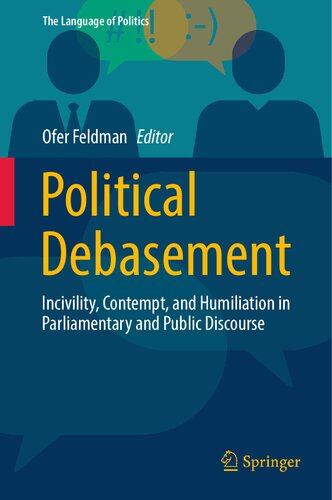

Most ebook files are in PDF format, so you can easily read them using various software such as Foxit Reader or directly on the Google Chrome browser.
Some ebook files are released by publishers in other formats such as .awz, .mobi, .epub, .fb2, etc. You may need to install specific software to read these formats on mobile/PC, such as Calibre.
Please read the tutorial at this link: https://ebookbell.com/faq
We offer FREE conversion to the popular formats you request; however, this may take some time. Therefore, right after payment, please email us, and we will try to provide the service as quickly as possible.
For some exceptional file formats or broken links (if any), please refrain from opening any disputes. Instead, email us first, and we will try to assist within a maximum of 6 hours.
EbookBell Team

4.0
66 reviewsThis edited book is an innovative collection of studies―pioneering scholarship systematically exploring the various features of debasement language used by political leaders in their speeches, statements, and remarks during parliamentary and other official as well as unofficial, private activities. The book examines in particular the forms, functions, and effects of political debasement in Western and non-Western countries, including Spain, Malaysia, the UK, Japan, China, India, Montenegro, Greece, Poland, and Israel. It addresses the growing interest in recent years in issues related to the increase of debasement in the public sphere. These include high-echelon politicians’ invective and vulgarity toward their colleagues in houses of parliament; their abusive and cynical language toward sections of the public, including women and minorities; and their crude sarcasm and irony expressed toward media representatives. The book focuses on those instances where political leaders at the very highest-level employ debasement discourse; it identifies the specific language they use in different political cultures and under different situations; the reasons for using this type of language; and its consequences. The book brings together a team of distinguished political scientists, communication and linguistics researchers, and social and political psychologists, with expert backgrounds and experience in understanding the reciprocal interaction between language and politics, in this case: debasement. They discuss and provide a number of novel insights of theoretical and practical importance regarding debasing discourse, as well as potential avenues for future research on the nature and effect of this type of language.